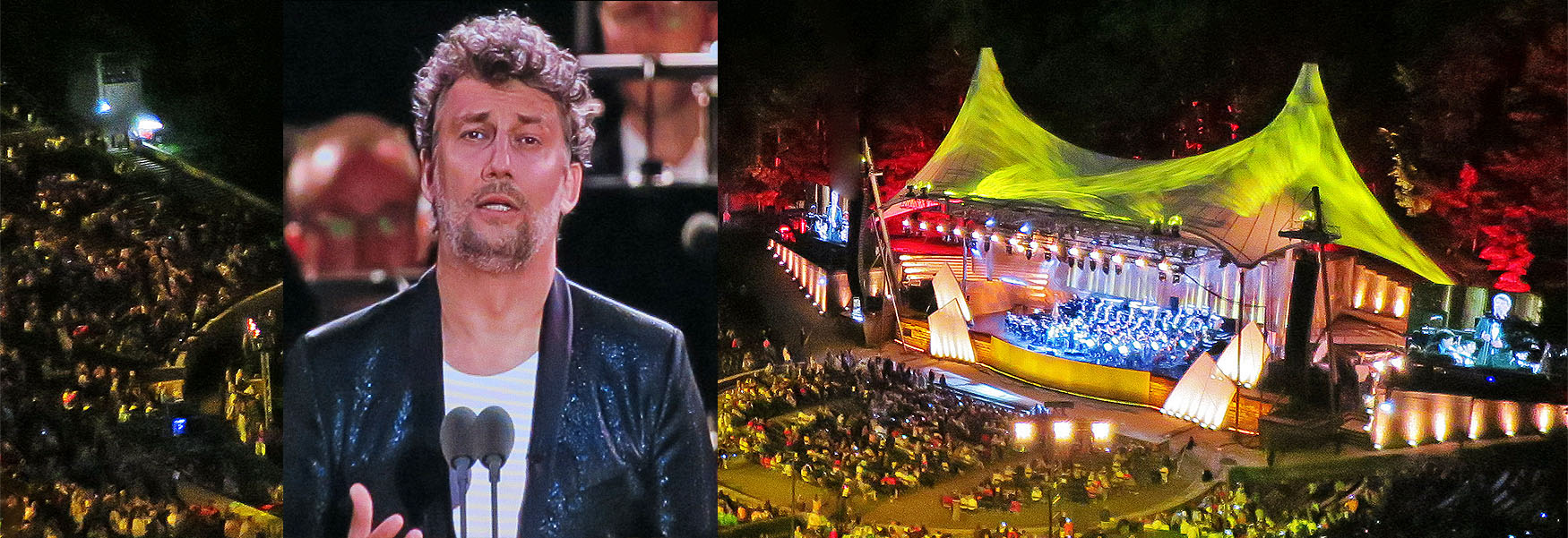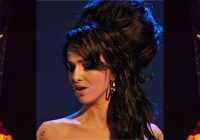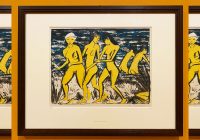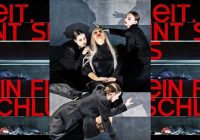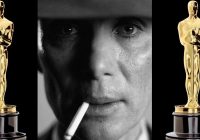Jonas Kaufmann in der Waldbühne Berlin
Von Holger Jacobs
15.07.2018
english text below
Wertung: 🙂 🙂 🙂 🙂 (vier von fünf)
Italienisches Belcanto unter preußischem Himmel
Der wichtigste und sicher auch bekannteste Tenor unserer Zeit ist zweifellos Jonas Kaufmann. Geboren 1969 in München, machte er 1994 an der dortigen Musikhochschule seinen Abschluss und erhielt noch im selben Jahr einen ersten Vertrag beim Saarländischen Staatstheater. Kaum 2 Jahre später machte er sich selbständig und begann seine einzigartige Karriere in den großen Opernhäusern dieser Welt. Als Karrieresprung gilt das Jahr 2006, als er in der Metropolitan Opera in New York den Alfredo aus Verdis „La Traviata“ sang und den Don José aus Bizets „Carmen“ im Royal Opera House in London. 2010 kam dann sein erstes Engagement bei den Bayreuther Festspielen, als er dort die Titelrolle in „Lohengrin“ von Richard Wagner sang.
Gegen Mitte des Jahrzehnts widmete sich Jonas Kaufmann wieder mehr dem Liedgut, für welches er schon immer ein besonderes Interesse zeigte. In dem Pianisten Helmut Deutsch fand er den idealen Partner, um z.B. Franz Schuberts „Winterreise“ und Gustav Mahlers „Lieder eines fahrenden Gesellen“ zu interpretieren.
Für das Land Italien empfindet Jonas Kaufmann schon lange eine besondere Zuneigung, seit er als Kind mit seinen Eltern dort Urlaub machte. Die Musik spielt in diesem mediterranen Land eine wichtige Rolle, wird sie doch auch im Alltag von ganz normalen Menschen benutzt, um sich die Zeit zu verschönern. Das ein verliebter Mann seiner Angebeteten etwas vorsingt, kennen wir nicht nur von den Minnesängern aus dem Mittelalter, sondern vor allem von schneidigen Italienern im heißen Süden Europas…
Seine Liebe zum Lied und seine Liebe für Italien brachten Jonas Kaufmann schließlich dazu sich näher mit dem italienischen Liedgut zu beschäftigen. Dabei stieß er auf den Belcanto („Schöner Gesang“), einen Gesangsstil, der in der italienischen Renaissance des 17. Jahrhunderts entstand und einen besonders süßen und lieblichen Stil des Singens bezeichnet. Das klingt etwas kitschig, benötigt aber eine ausgefeilte Technik mit einem großen Stimmenumfang, Koloraturen, Legato, Vibrato. Die Opern von Rossini wurden zum Bespiel in diesem Stil komponiert (zurzeit mit „Il Viaggio a Reims“ in der Deutschen Oper zu hören). Aber selbst in Deutschland kennen wir diesen Gesangsstil durch Lieder wie „Volare“ („Fliegen“, geschrieben 1958 von Domenico Modugno und Franco Migliacci und später sogar von Dean Martin und Frank Sinatra interpretiert) oder „Torna a Surriento“ („Komm zurück nach Sorrent“, 1894 von Ernesto de Curtis geschrieben, später interpretiert von Gigli, Carreras, Dean Martin, Placido Domingo und Luciano Pavarotti).
Am vergangenen Freitag, den 13. Juli 2018, durften ca. 16.000 Zuschauer in der Waldbühne Berlin zu den Interpretationen von Jonas Kaufmanns Belcanto Interpretationen mitschwingen. Was sie auch nicht nur aus musikalischen Gründen gerne taten, denn kurz vor Konzertbeginn war ein beträchtlicher Regenschauer niedergegangen und die Temperaturen deutlich abgesunken. Dennoch beste Stimmung in Deutschlands größter Open Air Arena nahe dem Olympiastadion.
Das Konzert begann fast pünktlich um 20.00 Uhr zunächst mit einer sinfonischen Ouvertüre von Verdis „I vespri siciliani“, was irgendwie keinen vom Hocker riss. Auch die folgenden von Jonas Kaufmann gesungenen Arien „Cielo e mar“ von Ponchielli und, zusammen mit Mezzosopranistin Anita Rachvelishvili, mehrere Arien aus „Cavalleria Rusticana“von Mascagni, konnten nicht wirklich überzeugen. Höflicher Beifall, mehr nicht. Die Zuschauer hatte sich nun mal auf etwas anderes eingestellt und wollten dies auch hören.
Um ca. 21.00 Uhr, kurz vor der Pause, kam Jonas Kaufmann auf die Bühne und verkündete, dass ihm Techniker gesagt hätten, ein größerer Regenschauer würde sich ankündigen, weshalb er jetzt vorschlüge, auf die Pause zu verzichten, um Zeit für so viele Lieder wie möglich ohne Regen zu haben. Große Begeisterung seitens des Publikums.
Kaum ertönte dann auch das erste Belcanto-Lied „Ti voglio tanto bene“ („Ich liebe Dich so sehr“ von Ernesto de Curtis) wachten 16.000 Zuhörer auf. Bei jedem der folgenden Lieder nahm die Begeisterung zu. Sogar Songs wie „Parla piu piano“ von Nino Rota (bekannt als Titelmelodie aus Coppolas Film „Der Pate“ von 1972), die gar nicht im Programm aufgeführt waren, werden von Jonas Kaufmann miteingebracht. Der Künstler auf der Bühne spürt jetzt, dass die Fangemeinde in der Arena richtig mitgeht. Auch kleine Tropfen vom Himmel werden nicht wahrgenommen, der ganz große Regen bleibt zum Glück aus. Selbst Petrus kann sich den Liebesliedern nicht entziehen.
Als das offiziell letzte Lied gesungen war gab es Standing Ovations und eine Zugabe nach der anderen wird vom Sänger verlangt. Es werden so viele, dass ich mit dem Zählen nicht mehr hinterherkam. Ich denke, es waren sieben. Oder acht? Das bekannteste Lied darunter: „Volare“. Was braucht man mehr, um von so einem Abend selig Abschied nehmen zu können.
Unsere kleine Bilderserie vom Abend:
english text
Jonas Kaufmann in the Waldbühne Berlin
By Holger Jacobs
07/15/2018
Italian bel canto under Prussian skies
The most important and certainly most famous tenor of our time is undoubtedly Jonas Kaufmann. Born in 1969 in Munich, he graduated in 1994 from the local Music Academy and received in the same year a first contract with the Saarland State Theater. Barely 2 years later he started his own business and started his unique career in the big opera houses of this world. As a career jump is the year 2006, when he sang the Alfredo from Verdi’s „La Traviata“ at the Metropolitan Opera in New York and the Don José from Bizet’s „Carmen“ at the Royal Opera House in London. His first engagement at the Bayreuth Festival came in 2010, when he sang the title role in „Lohengrin“ by Richard Wagner.
Toward the middle of this decade Jonas Kaufmann devoted himself more to the „Lied“, for which he has always shown a special interest. In the pianist Helmut Deutsch, he found the ideal partner, for Franz Schubert’s „Winterreise“ and Gustav Mahler’s „Songs of a Wayfarer“ to interpret.
For the country of Italy, Jonas Kaufmann has long felt a special affection since he made his childhood holidays there with his parents. The music plays an important role in this Mediterranean country, as it is also used in the everyday life of ordinary people to beautify the time. That a man in love with his beloved sings something, we know not only from the minstrels from the Middle Ages, but above all from dashing Italians in the hot south of Europe …
His love of song and his love for Italy eventually brought Jonas Kaufmann closer to the Italian songs. He came across the Belcanto („Beautiful Song“), a vocal style that originated in the Italian Renaissance of the 17th century and describes a particularly sweet and lovely style of singing. This sounds a bit cheesy, but requires a sophisticated technique with a large range of voices, coloratura, legato and vibrato. The operas of Rossini were composed for example in this style (currently heard with „Il Viaggio a Reims“ in the Deutsche Oper). But even in Germany we know this vocal style through songs like „Volare“ („Flying“, written in 1958 by Domenico Modugno and Franco Migliacci and later even interpreted by Dean Martin and Frank Sinatra) or „Torna a Surriento“ („Come back to Sorrento „, written in 1894 by Ernesto de Curtis, later interpreted by Gigli, Carreras, Dean Martin, Placido Domingo and Luciano Pavarotti).
Last Friday, July 13, 2018, about 16,000 spectators in the Waldbühne Berlin were invited to listen to Jonas Kaufmann’s Belcanto interpretations. The audience swayed to the songs not only for musical reasons, but also because shortly before the concert a considerable rain shower had fallen and the temperatures dropped significantly. Nevertheless, the best atmosphere in Germany’s largest open air arena near the Olympic Stadium.
The concert began almost punctually at 8 pm with a symphonic overture of Verdi’s „I vespri siciliani“, which somehow did not tear one off the stool (rather a wooden bench). Also the following arias „Cielo e mar“ by Pinchielli sung by Jonas Kaufmann and, together with mezzo-soprano Anita Rachvelishvili, several arias from „Cavalleria Rusticana“, could not really convince. Polite applause, nothing more. The audience had adjusted to something else and wanted to hear it.
At about 9:00 pm, just before the break, Jonas Kaufmann came on stage and announced that technicians had told him that there would be a big rain shower in the next time and he would now suggest to give up the break to allow enough time for that to have many songs as possible without rain. Great enthusiasm on the part of the audience.
As soon as the first Belcanto song „Ti Voglio tanto bene“ („I love you so much“ by Ernesto de Curtis) is heard, 16,000 listeners woke up. With each of the following songs, the enthusiasm increased. Even songs like „Parla piu piano“ by Nino Rota (known as the title theme from Coppola’s film „The Godfather“ of 1972), which are not listed in the program at all, are brought in by Jonas Kaufmann. The artist on stage senses that the fanbase in the arena is now really going along. Even small drops from the sky are no longer perceived, the very big rain is luckily out. Even Saint Petrus can not resist the love songs.
When the official last song is sung there is standing ovation and one „Da Capo“ after the other is demanded by the singer. There were so many that I could not keep up with the counting. I think it was seven encores. Or eight? The most famous among them: „Volare“. What more do you need to say goodbye to such an evening?
I would love to show you an video from the evening on my cultural channel kultur24 TV on Youtube, but I am waiting for the release by the concert organizer. In the meantime see my little video on my Facebook account.
Author: Holger Jacobs
Founder & Editorial Director of kultur24.berlin ug.
Founder & Editorial Director of kultur24 TV on Youtube.
Former correspondent for fashion in Paris.
Photographer, writer and filmmaker.


